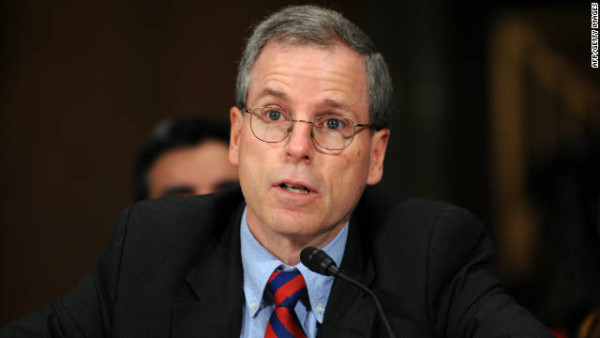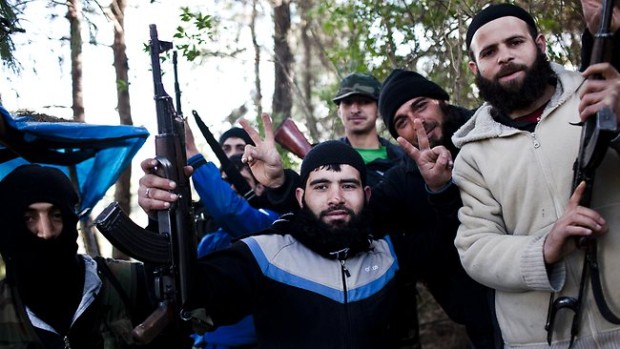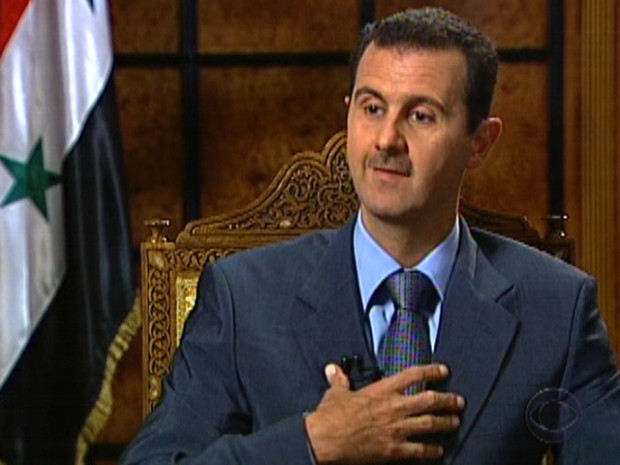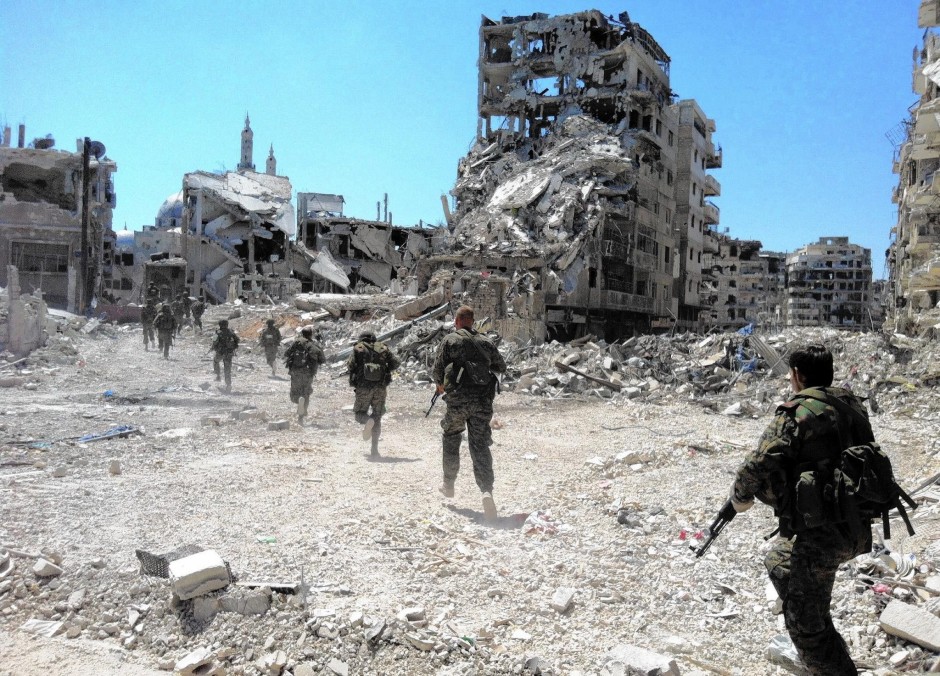Since the outbreak of civil war in Syria three years ago, critics have claimed, not without reason, that the United States has done far too little to arm non-jihadist rebels seeking to topple President Bashar Assad’s Baathist regime.
A few days ago, the former U.S. ambassador to Syria, Robert Ford, officially confirmed this accusation.

In an interview on PBS NewsHour, Ford admitted he had left his post in February because he could no longer publicly defend U.S. policy on Syria. Ford, a seasoned Middle East hand, said the Obama administration has been loathe to seriously assist Assad`s opponents, at a time when his steadfast allies, Russia and Iran, have stepped up their support for him.
“We consistently have been behind the curve,” Ford said. “We need — and we have long needed — to help moderates in the Syrian opposition with both weapons and non-lethal assistance.”
Ford is absolutely right.
It’s not precisely clear what kind of aid Washington has provided until now. But according to reports, the United States, through regional surrogates like Saudi Arabia and Qatar, has supplied the rebels with medical kits, food, some small arms and given them military training in Jordan.

Politically, the United States has come out in full support of the rebels, having urged Assad to step aside. Washington, too, has reportedly channelled funds to neighbouring countries like Jordan, Lebanon and Turkey that have sheltered hundreds of thousands of Syrian refugees.
This assistance has saved lives and sent an unmistakable message to Assad and company. But it doesn`t measure up to what is urgently required. The United States, the world`s pre-eminent power, should be sending non-jihadist rebel groups heavy-duty weapons like surface-to-air missiles and more anti-tank missiles to counter the Syrian air force and army.
Minus such equipment, the rebels stand no chance of turning the tide in the war — defeating Assad or forcing him to leave Syria altogether.

Washington says it has refrained from funnelling sophisticated weapons to the rebels out of fear that they may fall into the wrong hands — the Islamic fundamentalists who have effectively hijacked the anti-Assad uprising. It’s a plausible argument, but surely the United States is capable of assuring that such weapons do not end up in the hands of jihadists.
There is simply too much at stake here. Assad’s totalitarian regime, having virtually destroyed Syria to ensure its survival, is morally tainted and unacceptable. And it would be disastrous if jihadists seized control and established an Iranian-style theocracy in Syria.
In the meantime, Russia, Iran and probably China are replenishing Syrian arsenals, while Hezbollah foot soldiers and Iranian military personnel are fighting side by side with Syrian troops. Thanks in no small part to this band of loyal friends, Assad has regained the initiative and may yet emerge triumphant. It`s a far cry from the prediction, heard often in western capitals until quite recently, that Assad`s days were numbered.
Such is Assad`s self-confidence that he called a presidential election for June 3, and judging by the results, he won a landslide victory, capturing 88.7 percent of the vote. Dismissing it as a sham, U.S. Secretary of State John Kerry contemptuously described it as a “great big zero.”

Kerry may be correct, since Syrians in rebel-held territory could not even cast ballots. But he misses an important point. The election, a public relations exercise in essence, boosted Assad’s confidence and bolstered his will to fight on.
Short of creating a no-fly zone in Syria, an idea that may be worthy of consideration in the future should the rebel movement display a modicum of unity, the United States and its allies should send the rebels game-changing weaponry that may well tilt the balance of power in their favour.
Last summer, Washington lost a golden opportunity to hammer the Syrian regime after it had crossed President Barack Obama’s “red line” by using chemical weapons against the rebels. Rather than having held Assad to account for this war crime, the United States, showing weakness and a lack of resolve, accepted a clever and face-saving Russian proposal to destroy Syria’s stocks of chemical weapons.

The destruction of this arsenal, which has almost been completed, was a positive development. But the agreement that rendered it possible legitimized Assad’s government and will make no difference whatsoever on a battlefield where only conventional weapons are normally deployed.
Looking forward, the United States should show leadership by supplying the secular Syrian opposition with the weapons that can make a real difference in the long run.
In her memoirs, Hard Choices, Hillary Clinton, the former U.S. secretary of state, claims she recommended that the rebels be armed. But Obama, who was not inclined to take that “significant step,” overruled her.
It’s still not too late for Obama to modify his views and do the right thing.
